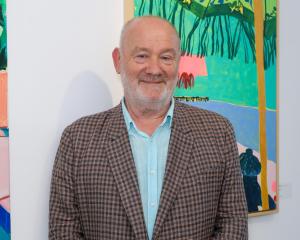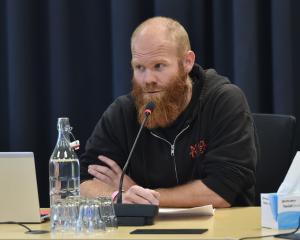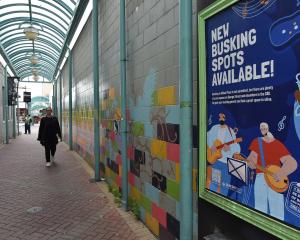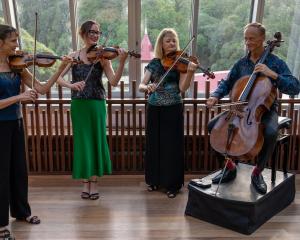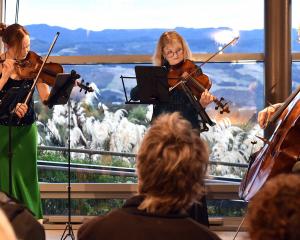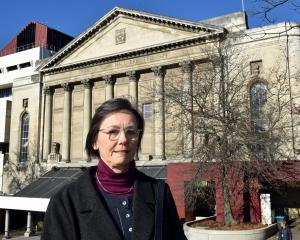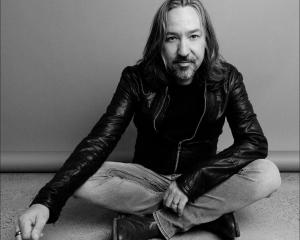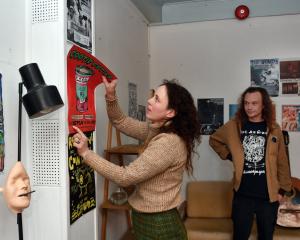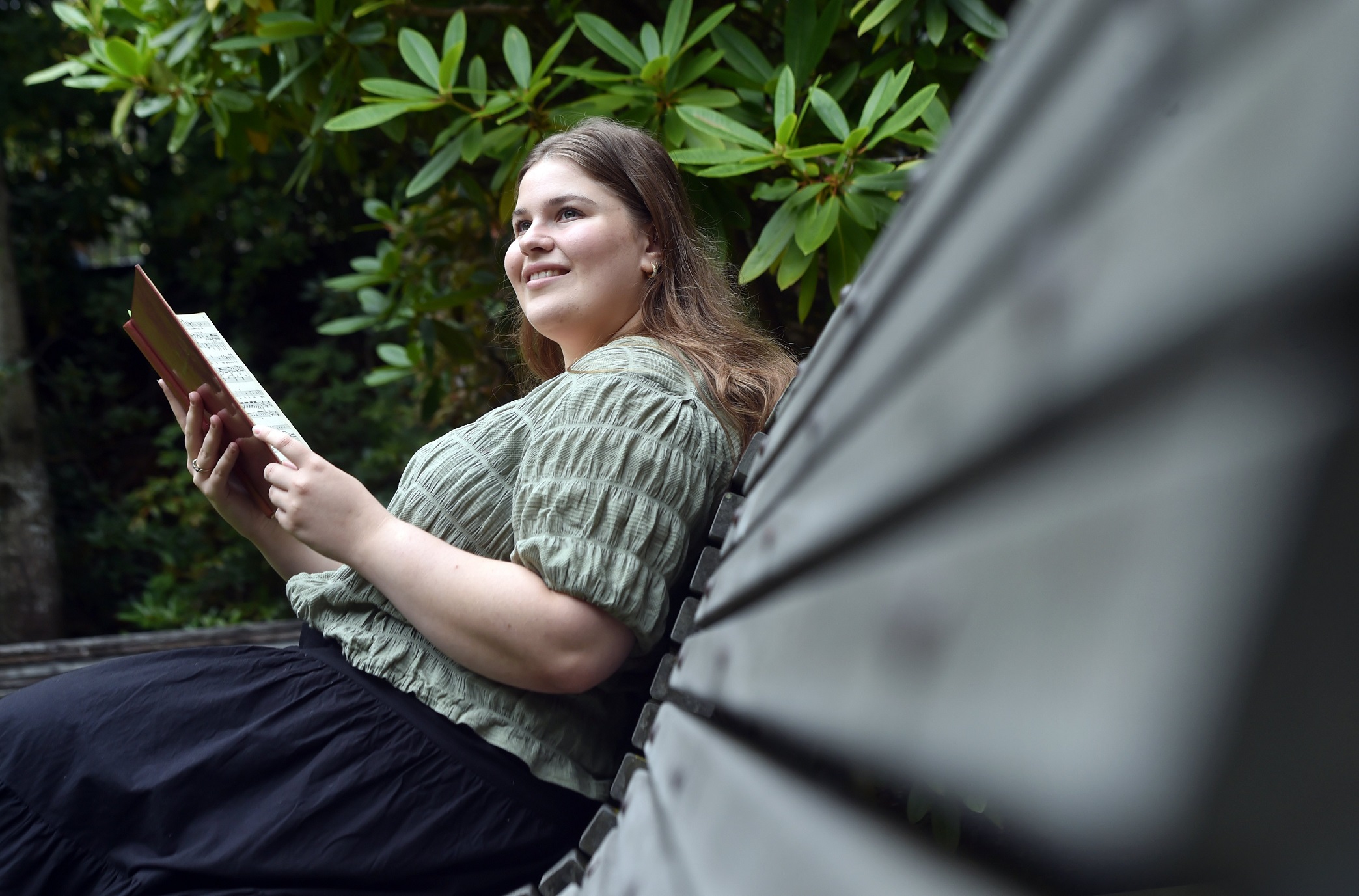
Erin Connelly-Whyte can play 20 instruments but it is her voice that has won out.
"I was always excited to learn a new things. I loved picking up anything and trying to be good at it."
So she joined a choir and when it was suggested she had a nice voice, she thought she would take some lessons.
"It just progressed from there."
She achieved her Grade 8 in her singing exams with distinction and she is now studying classical voice at the University of Otago.
This weekend Connelly-Whyte debuts with the City Choir alongside fellow singers Brendon Shanks, Caroline Burchell and Edward Smith.
It is also her first time performing sacred music. Connelly-Whyte will perform a duet with Burchell in one of J.S. Bach’s earliest surviving church cantatas, Christ lag in Todesbanden (Christ lay in death’s bonds) which is based on a hymn by Martin Luther that reflects on Christ’s death and resurrection.
She will also perform a solo in prolific composer Georg Philipp Telemann’s cantata Zwei Jünger gehn nach Emmaus which narrates the post-resurrection meeting of Jesus with two disciples on the road to Emmaus.
"I don’t usually sing religious sacred music. It’s quite nice to have the opportunity to widen my repertoire."
While she is a soprano, Connelly-Whyte’s rich voice also suits alto parts.
"It’s a lot lower music than I normally sing so I’m having to keep myself lifted while I go down low."
Through performing in the choir at school, she was introduced to musical theatre, as the choir sang a lot of pieces from top musicals. She took part in her school’s production of Fame.
"It expanded my knowledge and I thought I want to dip into that field."
More recently she performed in Musical Theatre Dunedin’s production of Les Miserables and last year she performed in Opera Otago’s Miss Brill.
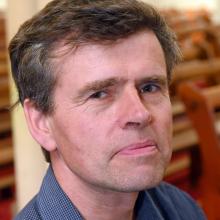
Her focus these days is on the operatic repertoire, studying with Rebecca Ryan and Tessa Romano as part of her honours in performance. It requires intensive one-hour voice practices each day. Last year she received the "Most Promising Singer" award at the Christchurch Competition’s Aria Final.
"It takes a lot of technique, a lot of time, a lot of practice and a lot of perseverance until everything unlocks and fits in the right place.
"You’ll find me there every day in the practice rooms singing all the high notes."
When she is not studying singing, Connelly-Whyte is most likely to be found in a four-hour anatomy laboratory, as she is also studying for a science degree.
"They’re a very odd combination but I’ve enjoyed science since I did it in high school. I took a liking to biology and learning about animals."
She then she realised she wanted to learn about humans and how she functioned as a person. Through her studies she has also learned about the muscles she uses as a singer and how an hour’s singing practice is similar to a gym workout.
"It gets me a stable job until I get my singing career up and running."
Having another focus also helps keep the stress levels down, even though it requires a lot of work, she says. Her music can also be an escape from the science.
When not studying or rehearsing, Connelly-Whyte can be found passing on her knowledge by teaching flute (her first instrument), musicianship theory and several other instruments at Saturday Morning Music Classes Dunedin, and recently classical voice and musical theatre at The Voice Lab.
Another first for the concert is the premiere of a post-Easter hymn O Sons and Daughters written by David Burchell, who is also the musical director of the choir and has been for 23 years — the longest serving conductor in the choir’s 156-year history.
Burchell admits he does not write a lot of music and often only does when "spurred on by need". He thinks it is probably 10 years since the choir performed a piece he has written.
"I get ideas for compositions from time to time but I think I’d never have time to work that out and finish it, so do I bother pursuing it?"
This piece came about as he was assembling the programme for the Easter concert and thought it would be nice to include an Easter-themed contemporary work for "contrast and balance" to the Baroque and early classical works already programmed.
Despite an extensive trawl through contemporary compositions he drew a blank in finding a piece that would fit the choir and provide the contrast in style he was after.
"I started singing hallelujahs in my head. Practically every piece of Easter music ever written includes hallelujahs — five out of six pieces in the concert have extensive hallelujahs — I thought there is a germ of something there."
It led him to the hymn O Sons and Daughters Let Us Sing which is an old hymn attributed to Jean Tisserand, who died in 1494. It was translated into English in the 19th century and is included in many modern hymn books.
"It was translated to an old French tune. There is nothing with the French tune, it is just all rather samey and also a bit gloomy for a hymn which is all about the resurrection."
Burchell thought the text needed music that was more joyful, more uplifting and "breathless".
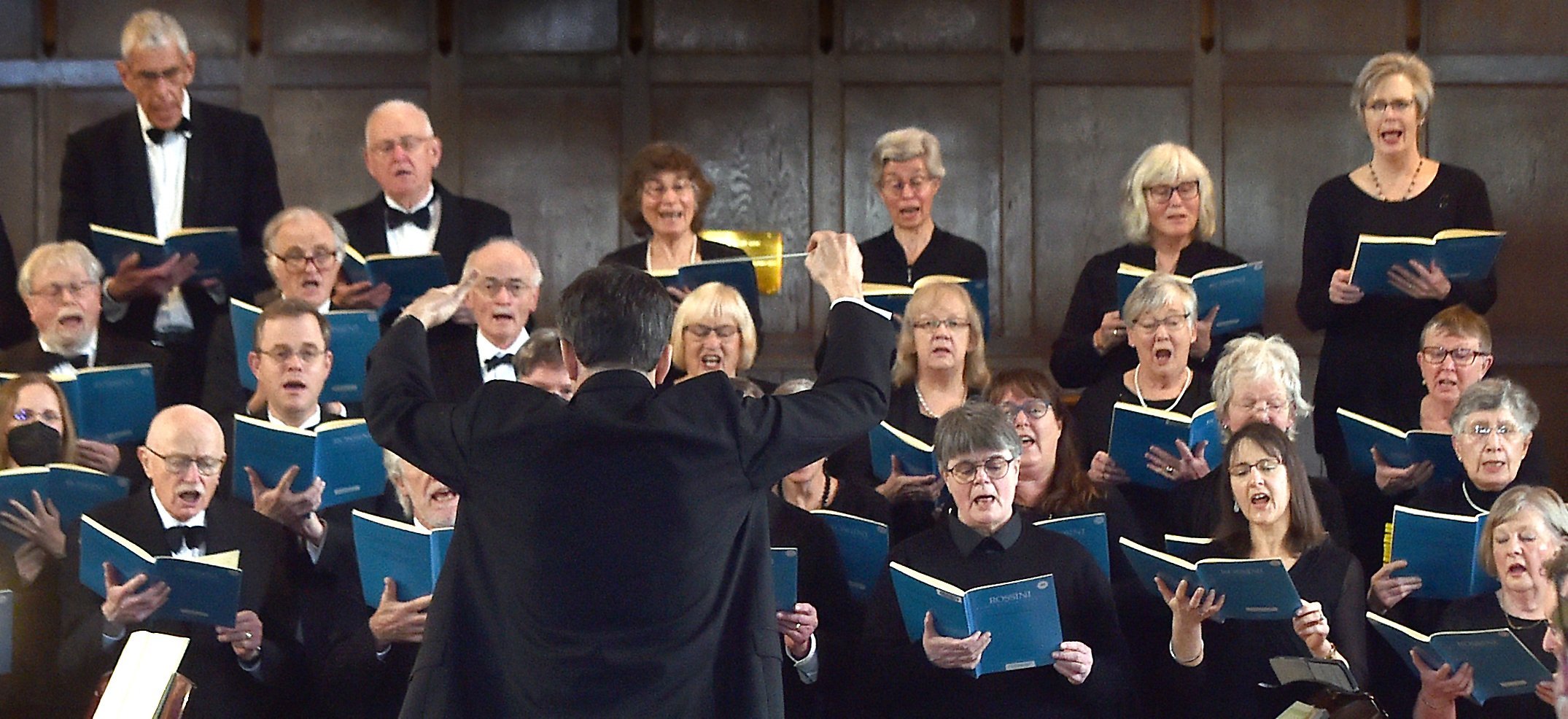
"I ended up writing quite a fast-paced piece for unaccompanied choir with a melody is a slightly irregular metre, so it all feels a little unsettled and breathless and on edge, as no doubt they would have felt."
It has nine verses with a hallelujah at the end of each which gave him scope to vary the length of the word depending on the sentiment of the verse so it was not just a "perfunctory full stop" at the end of each verse.
"I managed to create a piece that does not repeat itself literally but uses the same germ of an idea throughout and reworks it in different forms so you get a sense of melodic continuity."
The choir has got to grips with the new piece despite its irregularities, he says.
"They seem to be enjoying it, which is reassuring. You are always a bit nervous when you put something you’ve written in front of other people. I’m very pleased with the way it’s come out."
The rest of the programme is based on Eastertide. Most choirs like City Choir in the run-up to Easter concentrate on the Passion story, particularly Bach’s Passions, but there is a considerable amount of work celebrating the "other side", the resurrection and events following, he says.
"I thought it would be nice to write a programme exploring that."
The concert also features Surrexit Christus Hodie (Christ is risen today) by Samuel Scheidt, renowned 17th-century German composer, organist and teacher; Osterhymne (Easter hymn) by 19th-century composer, Josef Rheinberger and Mozart’s Regina Coeli sets the text of the Latin hymn to Mary celebrating Christ’s resurrection.
They are a mix of accompanied and unaccompanied works which provides a variety of different styles for the choir to sing as well as the soloists.
"Yes, there is a heavy German-Baroque leaning but there is also Mozart and Josef Rheinberger, an enormously ancient text going back to the 11th century."
The Telemann work Connelly-Whyte will sing is an interesting piece as it does not seem to have been performed much or even recorded in the modern age, in part because he wrote a lot of music that is still being discovered, he says.
Burchell had been unable to find a translation of the work and a search for a recording also drew a blank.
"We have an edition produced three years ago. I’m not going to claim a premiere on this one but it’s not a work that is performed very often."
TO SEE
Alleluia! Music for Eastertide, City Choir, Knox Church, Dunedin, Saturday April 22.


